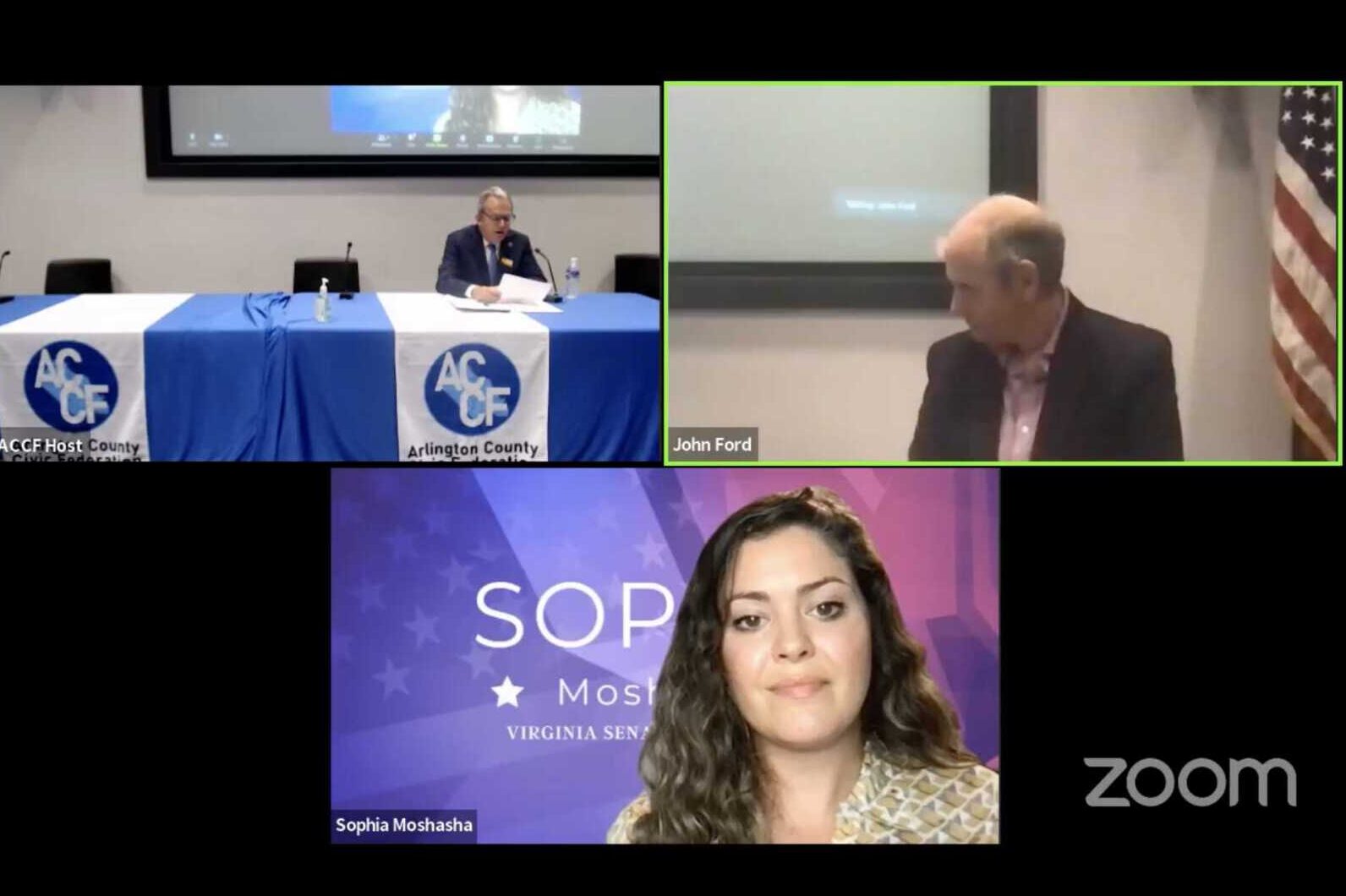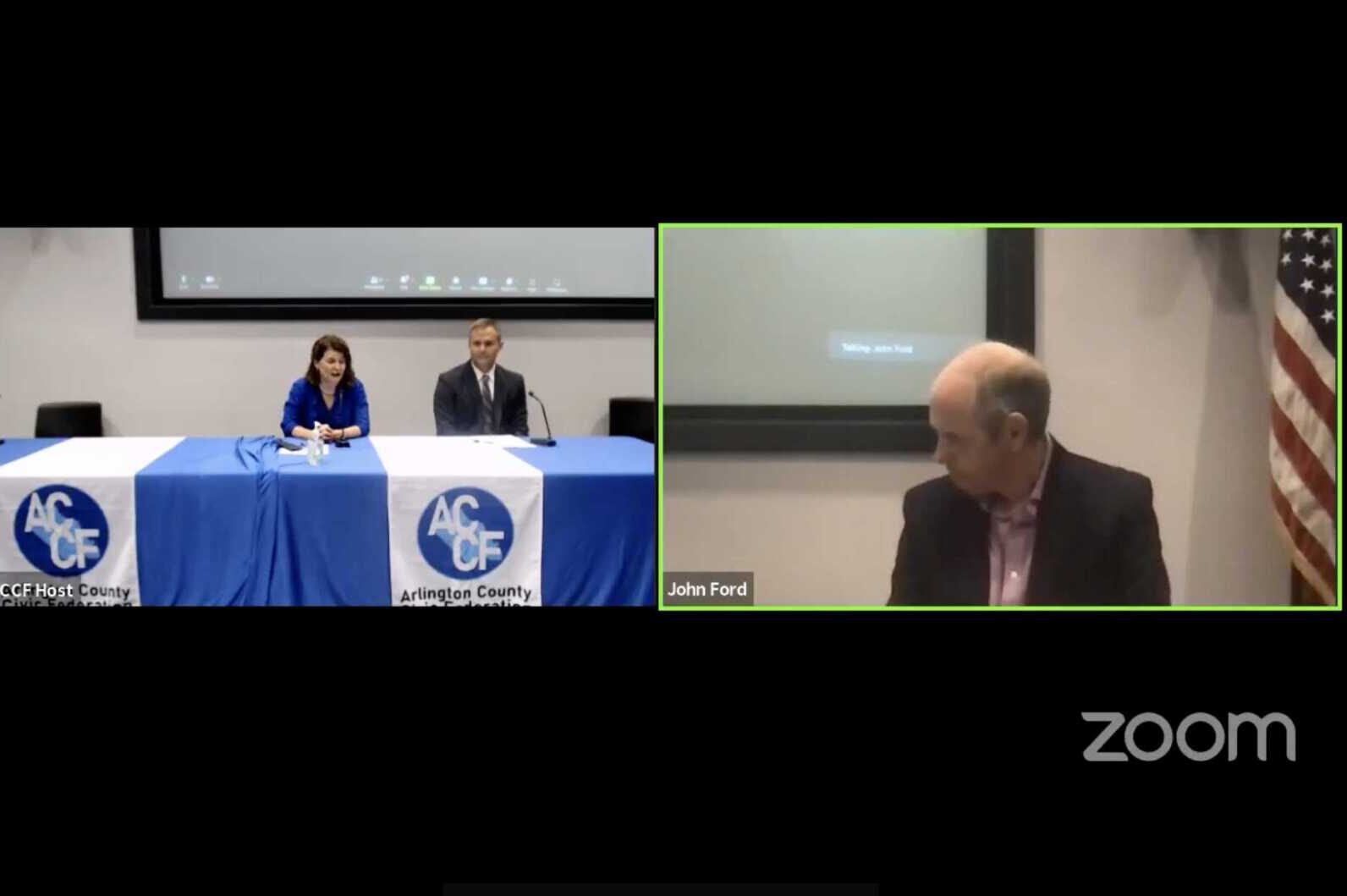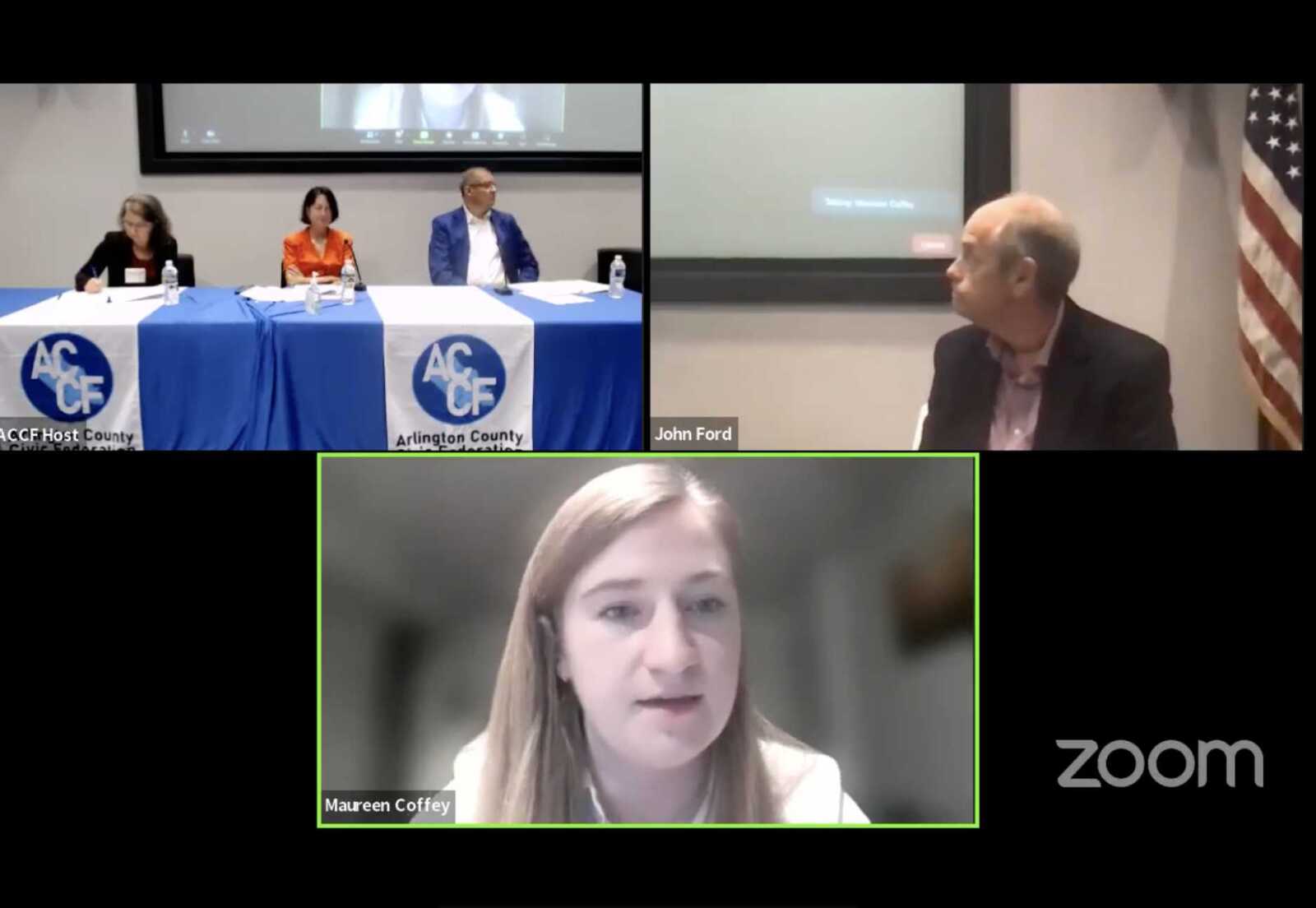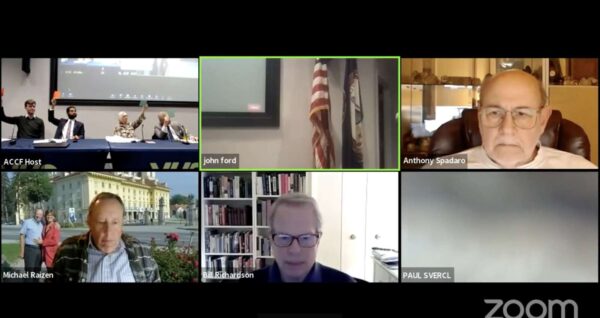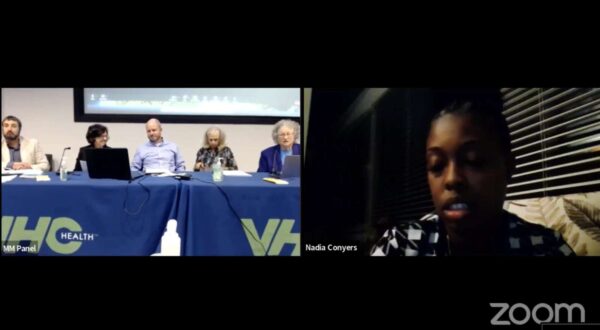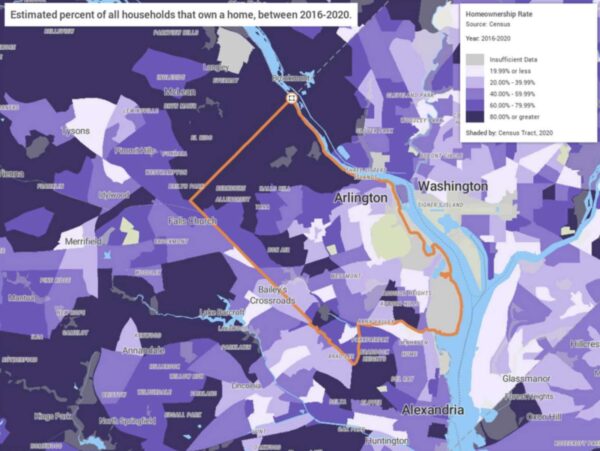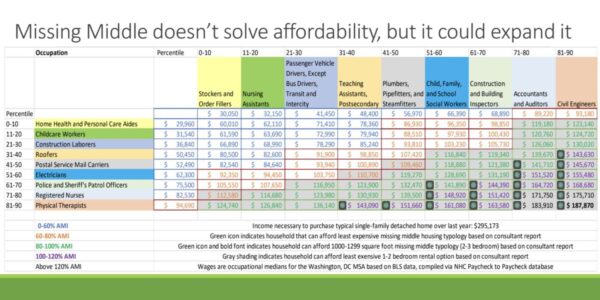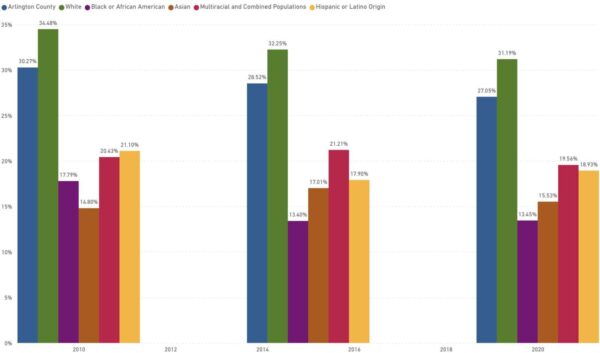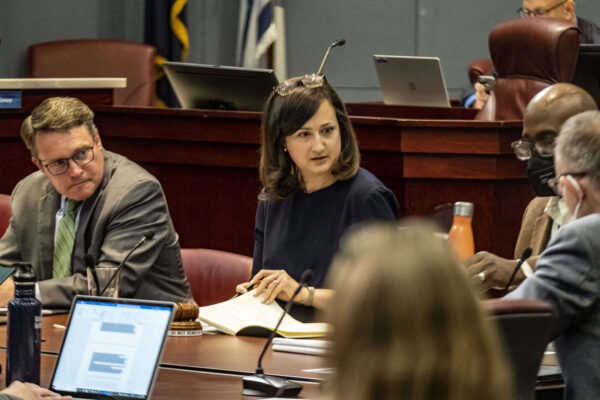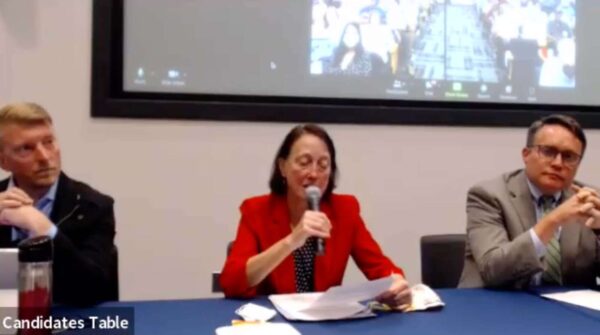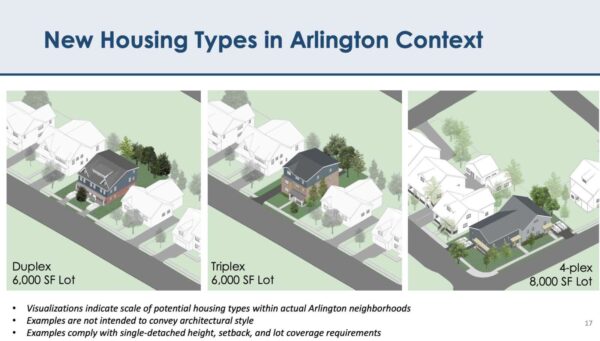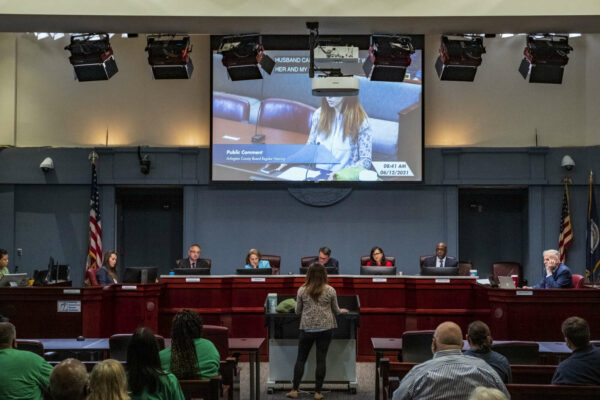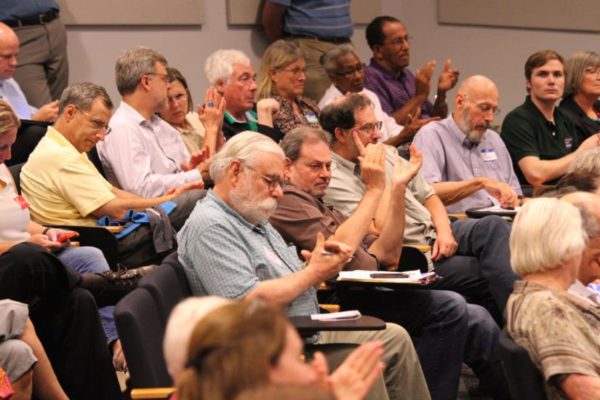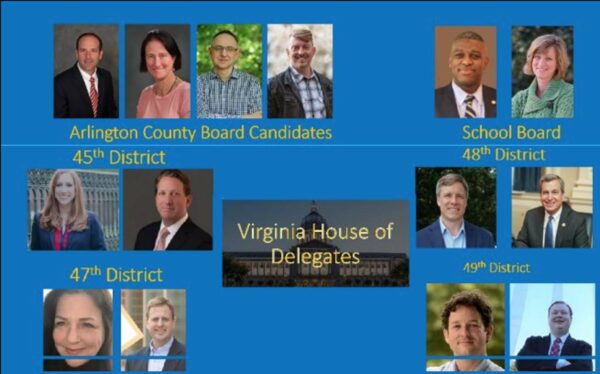After a summer lull, politicking in Arlington is back in full swing.
For candidates, the first big stop on the campaign trail was an in-person and virtual forum hosted by the Arlington County Civic Federation, or CivFed, last night (Tuesday).
Democrat and Republican candidates for the state legislature outlined their top social and economic goals, while the four Arlington County Board candidates, meanwhile, were quizzed on more local topics, including government transparency — a key issue for CivFed that roiled the organization earlier this year.
State senate challengers emerge
Two Republicans are challenging Arlington’s two long-time incumbent Democrat state senators: Sophia Moshasha, vying for the 39th District seat against Adam Ebbin, and David Henshaw, going up against Barbara Favola for the 40th District seat.
Last night, the four candidates staked out their party-line positions on center-stage social issues, including abortion, gun violence, public education and crime.
Favola and Ebbin say they are both focused on codifying abortion rights and banning “assault-style” weapons.
Ebbin said his other top priorities “are a state government that fights for Virginians and an economy that works for Virginia, but we need to keep improving our K-12 public education system.”
Both incumbents pointed to their years of experience legislating under Republican and Democrat governors as reasons voters should re-elect them.
“I have always been very pragmatic,” Favola said. “I think I’m one of the more successful lawmakers in terms of gaining bipartisan support for my bills, and actually having my bill signed.”
Both Republicans styled themselves as “political outsiders.” Echoing similar language from GOP Virginia Gov. Glenn Youngkin during his race and tenure, the candidates called on the state to safeguard the rights of parents to “have a say” in their child’s education. They both also called for increased funding for law enforcement to address crime.
“I am concerned — and a little bit upset — with the direction that our country and our state are going, particularly with regard to education, the high cost of living and crime,” Henshaw said. “Arlington deserves a choice in the election coming up.”
Criticizing Favola’s support of abortion rights, Henshaw said he supports a 15-week abortion ban, with exceptions for the health of the mother as well as rape and incest, as well as lower state taxes.
Moshasha, meanwhile, has made technology and science a marquee issue. Going up against Ebbin, who chairs two senate committees focused on technology, she says she will push for more STEM programs at all educational levels and more policies to attract emerging industries to Virginia.
“I am not a career politician. I focus on the things that we need to move our economy and our community forward,” she said. “I think it’s time to get a fresh voice, a fresh perspective and an innovative mindset with the energy that will get things done on behalf of the greater community.”
Arlington County Board candidates on transparency
The County Board forum began with topics such as police staffing and the office vacancy rate, but heated up during a later question about transparency.


